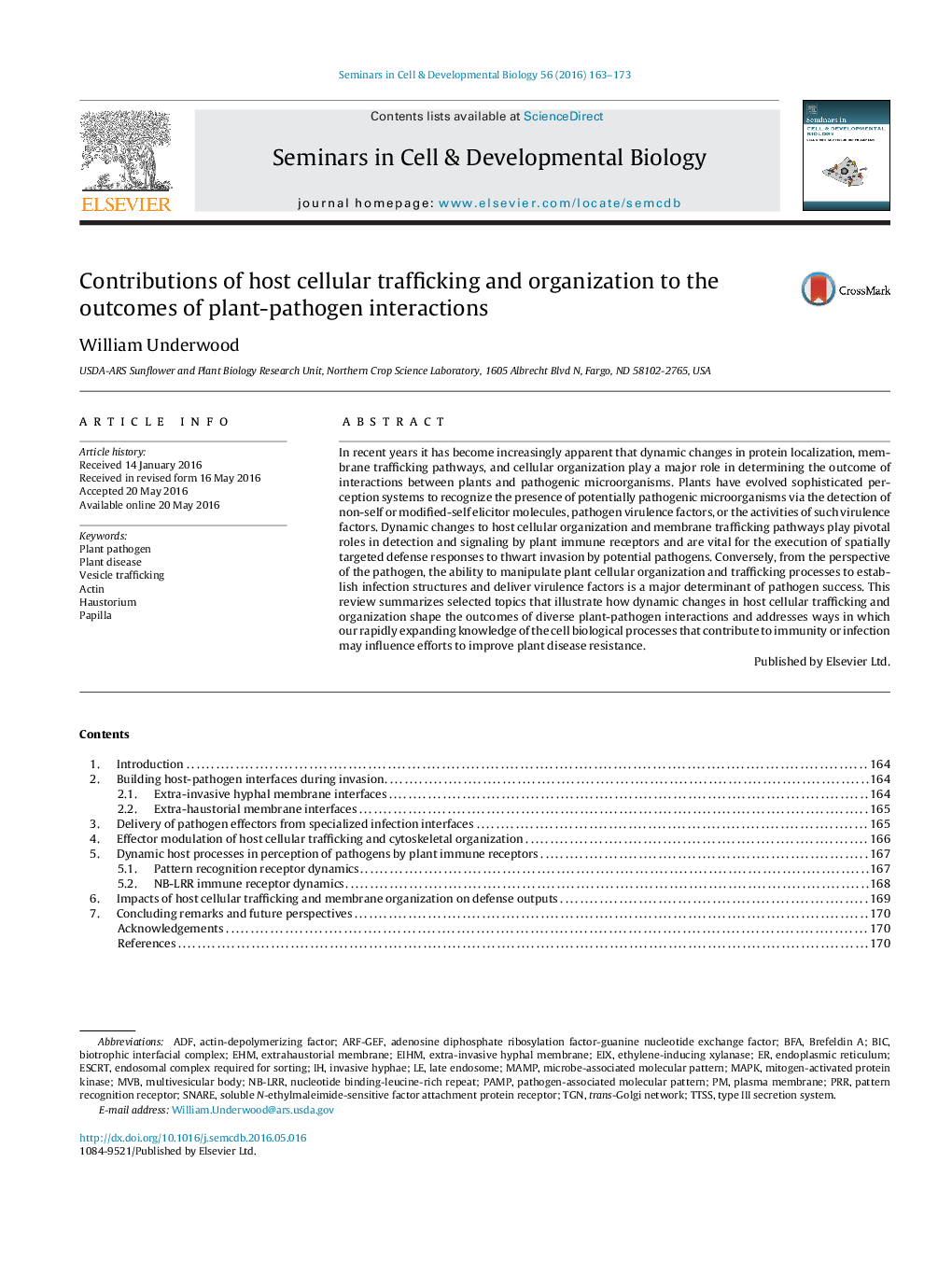| کد مقاله | کد نشریه | سال انتشار | مقاله انگلیسی | نسخه تمام متن |
|---|---|---|---|---|
| 2202489 | 1551367 | 2016 | 11 صفحه PDF | دانلود رایگان |
In recent years it has become increasingly apparent that dynamic changes in protein localization, membrane trafficking pathways, and cellular organization play a major role in determining the outcome of interactions between plants and pathogenic microorganisms. Plants have evolved sophisticated perception systems to recognize the presence of potentially pathogenic microorganisms via the detection of non-self or modified-self elicitor molecules, pathogen virulence factors, or the activities of such virulence factors. Dynamic changes to host cellular organization and membrane trafficking pathways play pivotal roles in detection and signaling by plant immune receptors and are vital for the execution of spatially targeted defense responses to thwart invasion by potential pathogens. Conversely, from the perspective of the pathogen, the ability to manipulate plant cellular organization and trafficking processes to establish infection structures and deliver virulence factors is a major determinant of pathogen success. This review summarizes selected topics that illustrate how dynamic changes in host cellular trafficking and organization shape the outcomes of diverse plant-pathogen interactions and addresses ways in which our rapidly expanding knowledge of the cell biological processes that contribute to immunity or infection may influence efforts to improve plant disease resistance.
Journal: Seminars in Cell & Developmental Biology - Volume 56, August 2016, Pages 163–173
